Abstract
Two experiments sought to determine if pigeons could discriminate and remember recent sequences of stimuli and responses. A variant of Konorski's short-term memory procedure involving successive presentation of sample and test stimuli was used. The samples were stimulus-response pairs of the form, (S-R)1–(S-R)2. Differential test responding disclosed memory of the two-item samples, with birds showing earlier and greater control by the second item than the first (Experiment 1). When the retention interval separating the second item of the sample sequence from the test stimulus was lenghtened from .5 to 2.0 or 4.0 sec, a systematic loss of stimulus control resulted; however, when varied over the same temporal range, the interval between the two items of the sample sequence had a much smaller effect, or none at all (Experiment 2). These results support an account of response-sequence differentiation that stresses short-term memory of organized behavior patterns.
Keywords: response differentiation, behavioral organization, stimulus-response memory, short-term memory, key peck, pigeons
Full text
PDF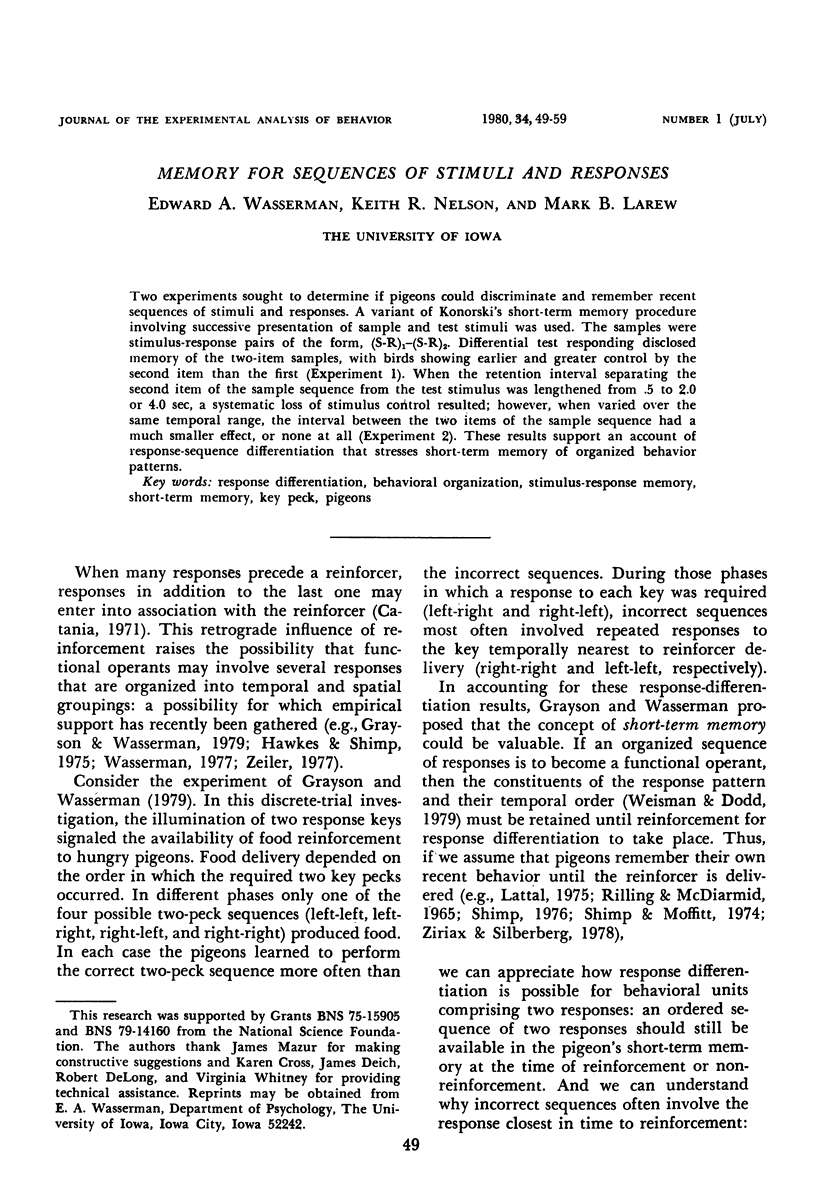
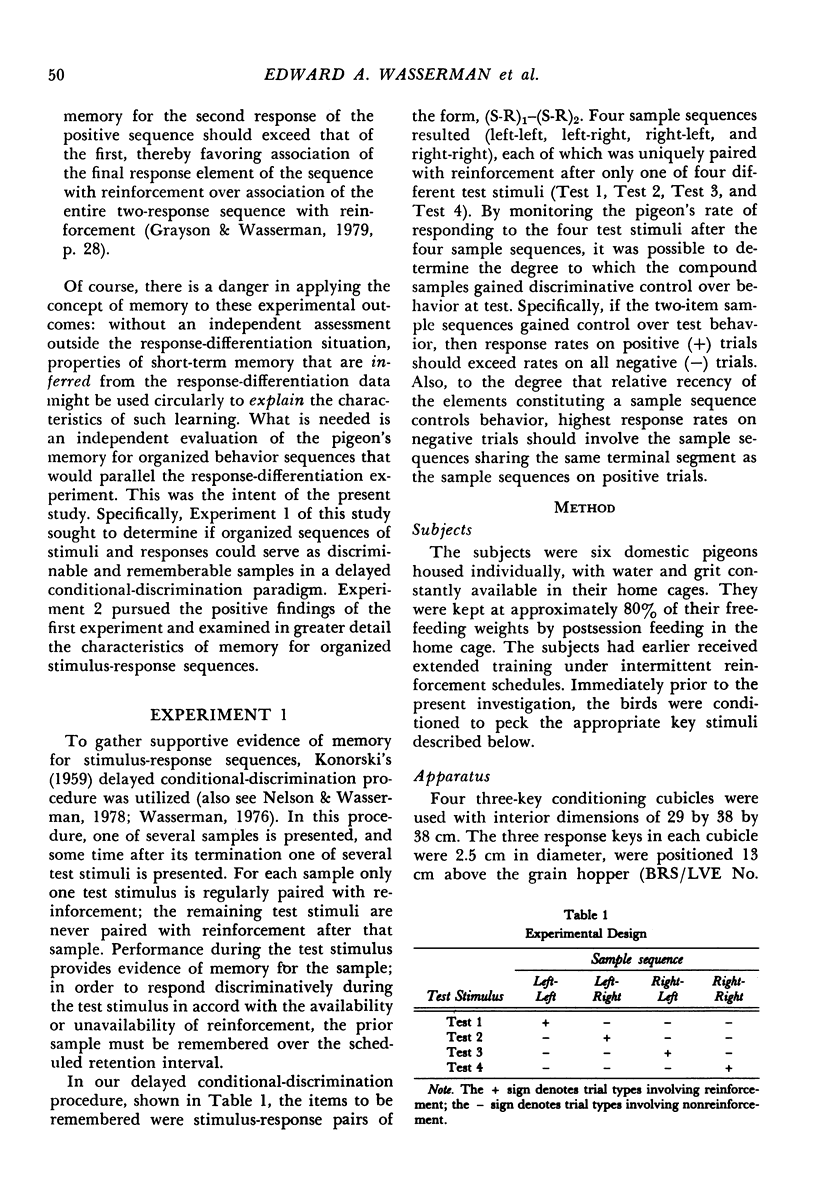
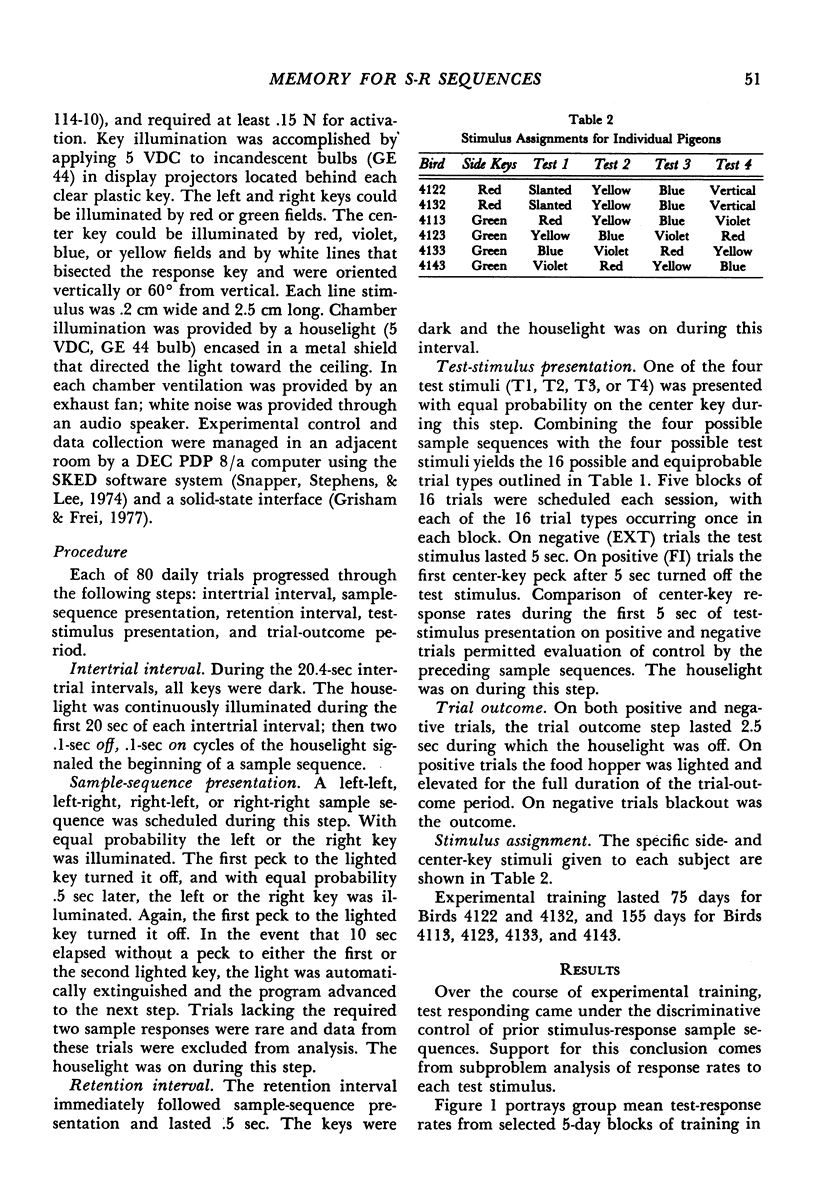
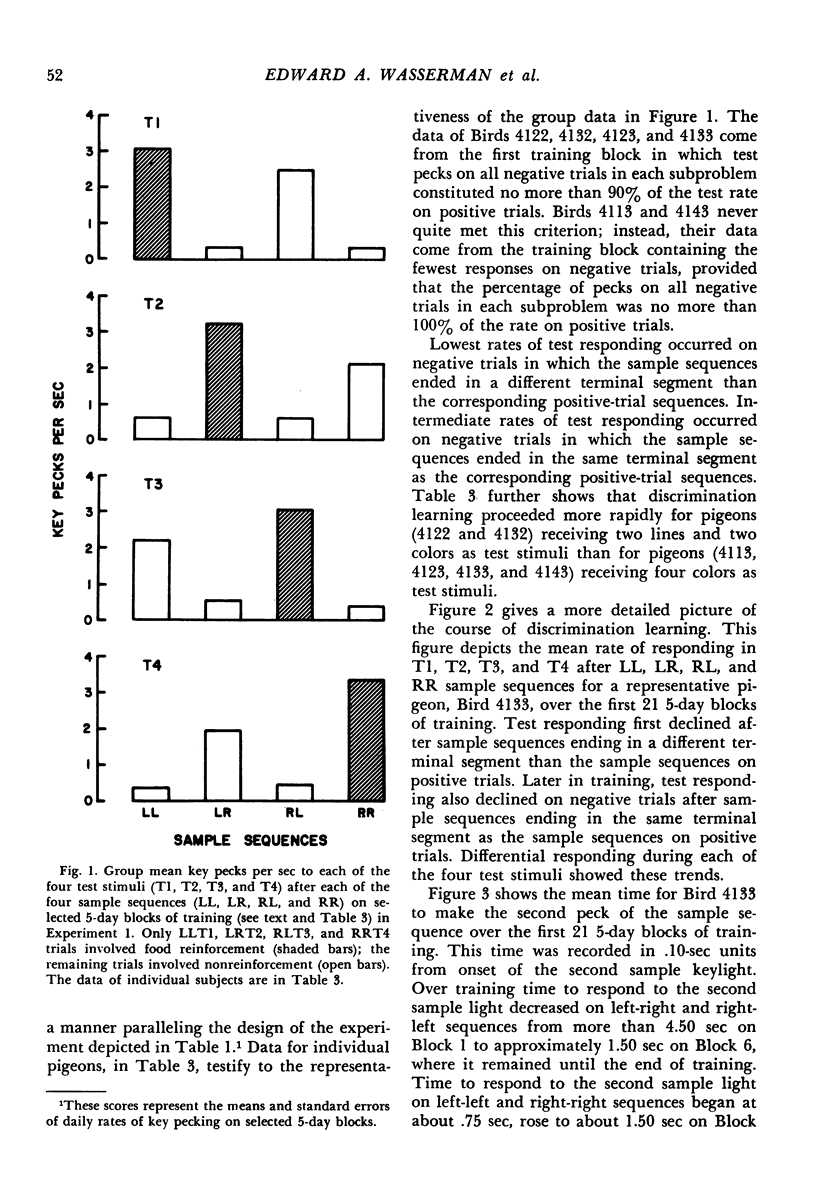
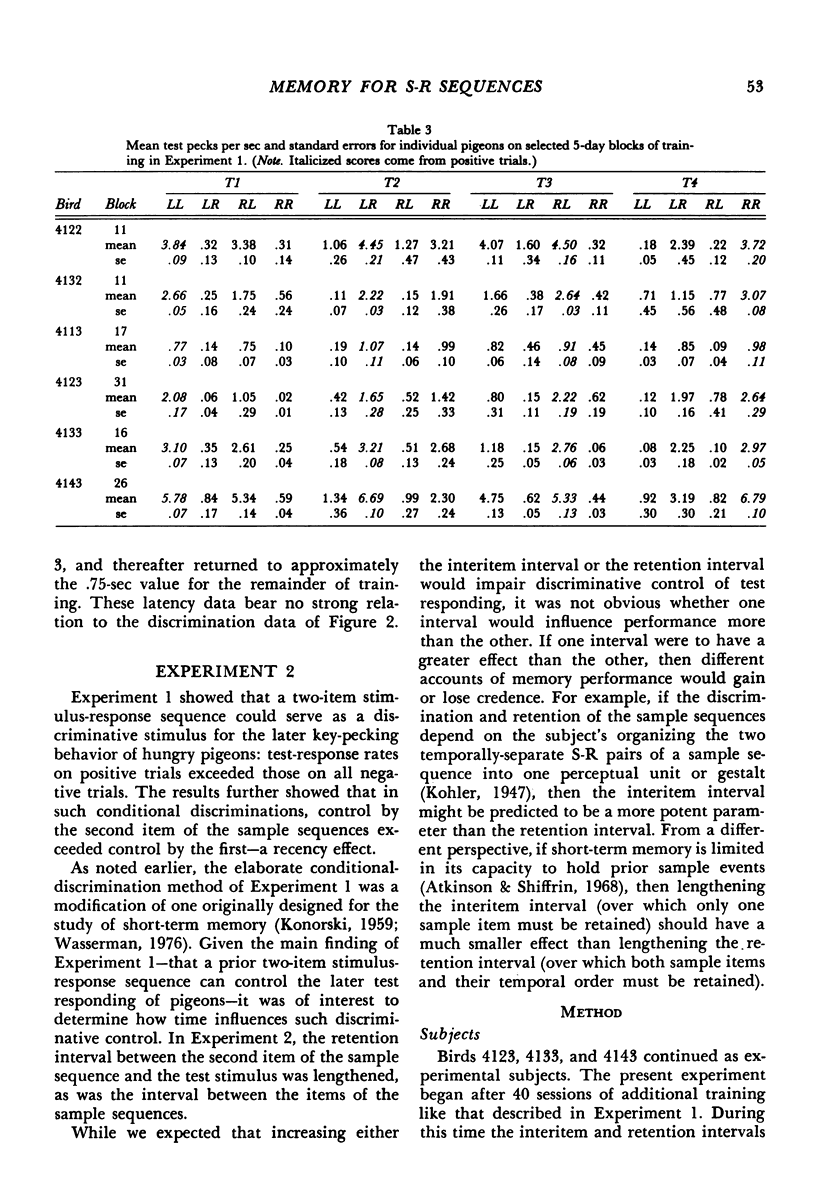
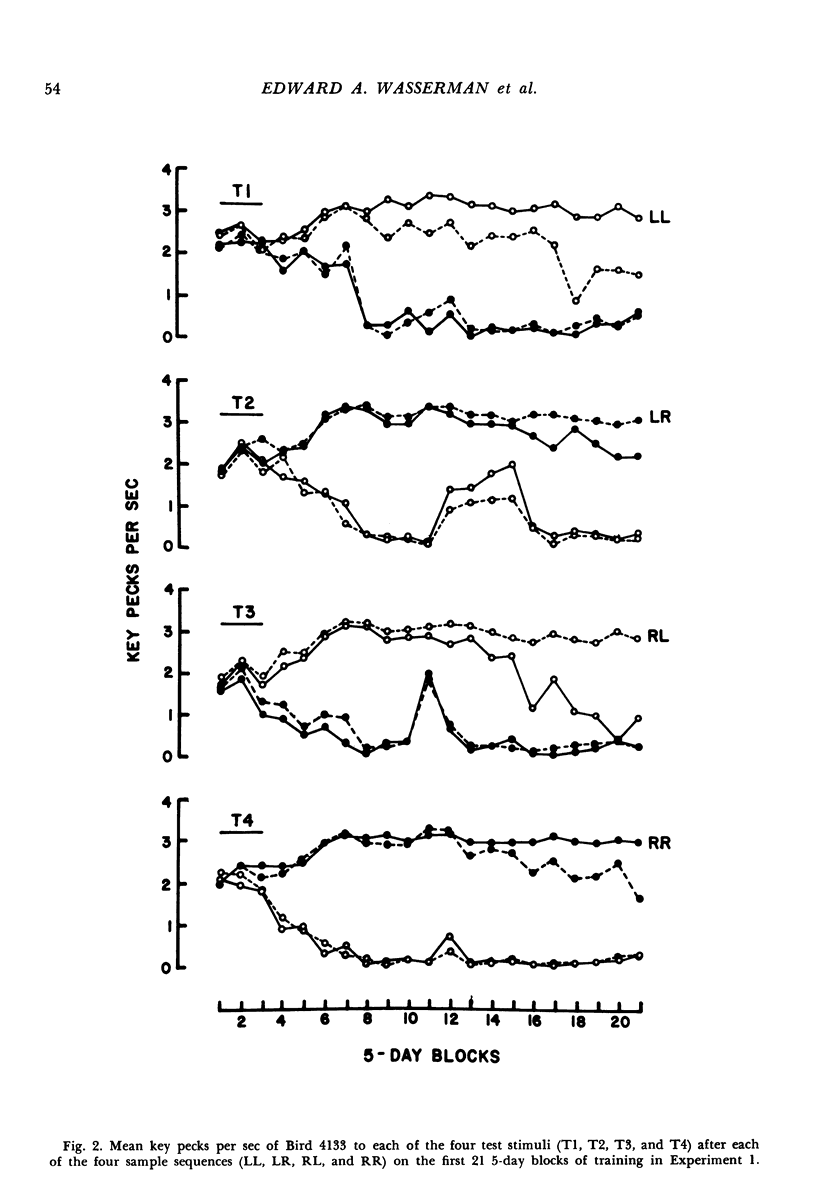
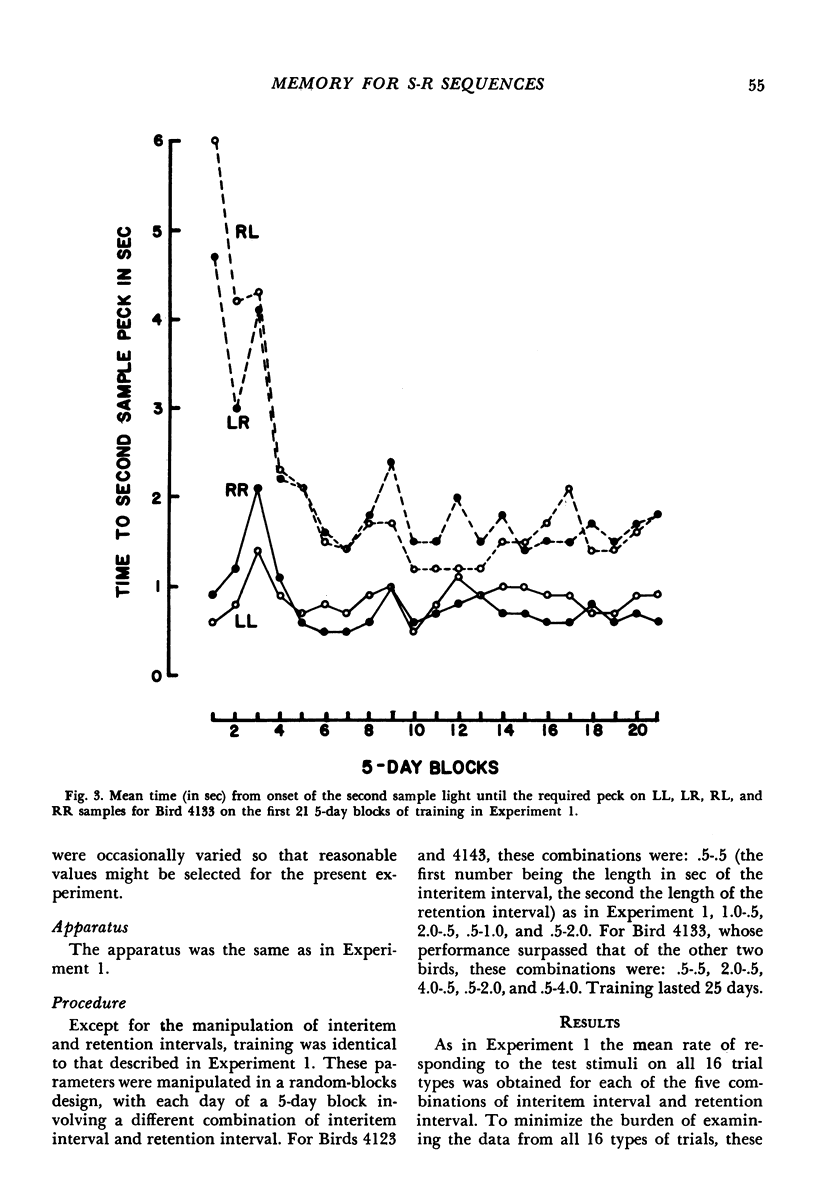
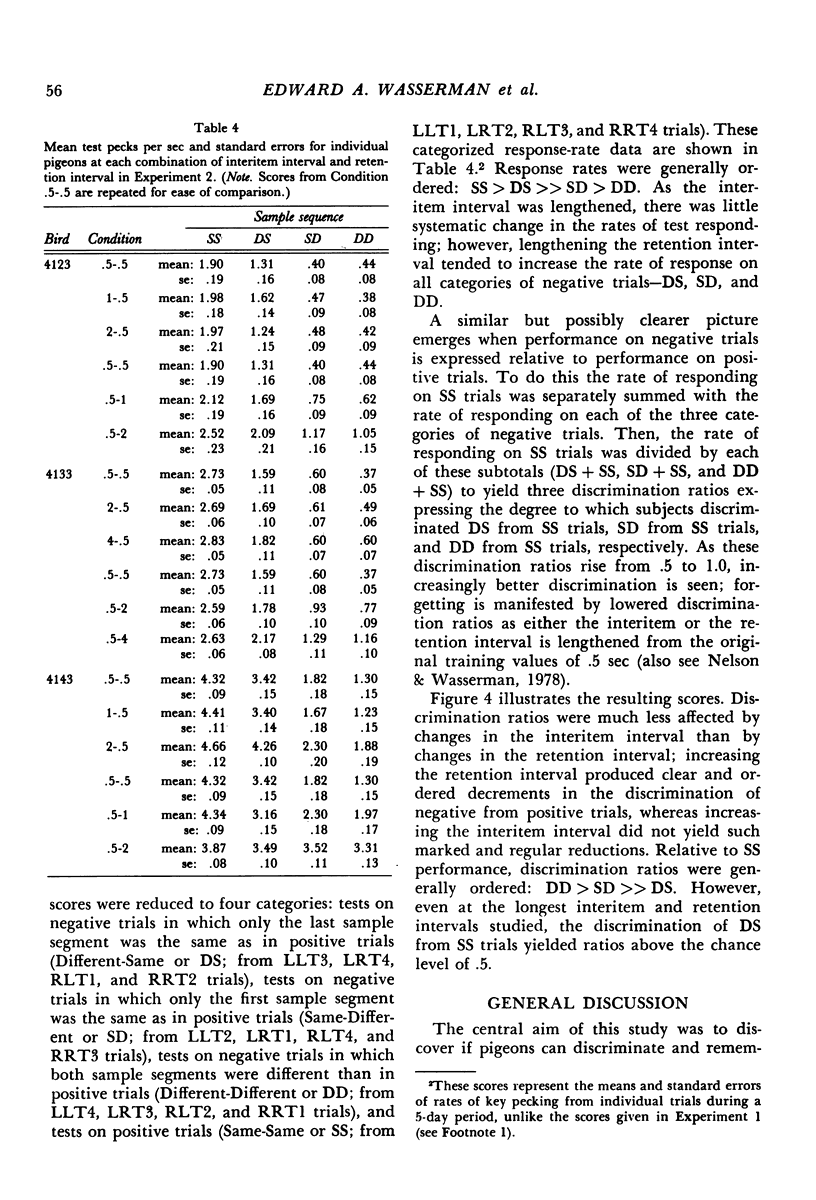
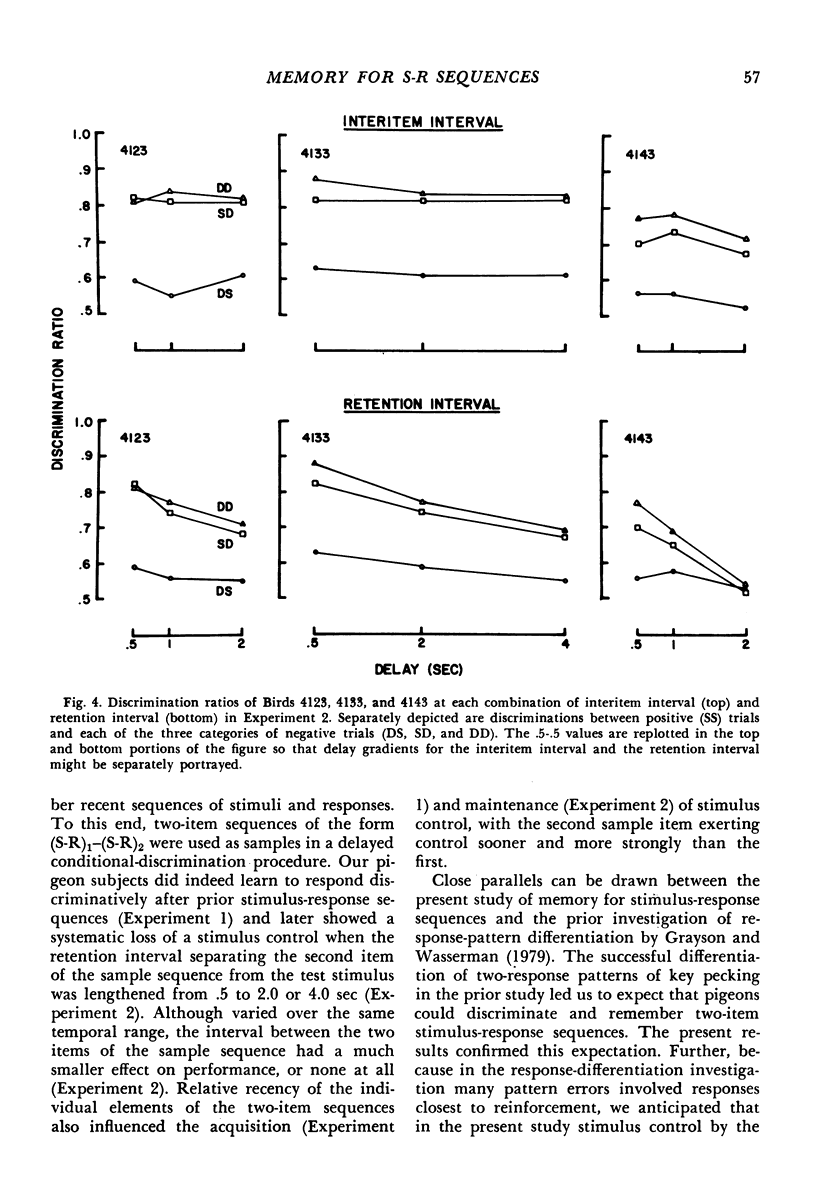
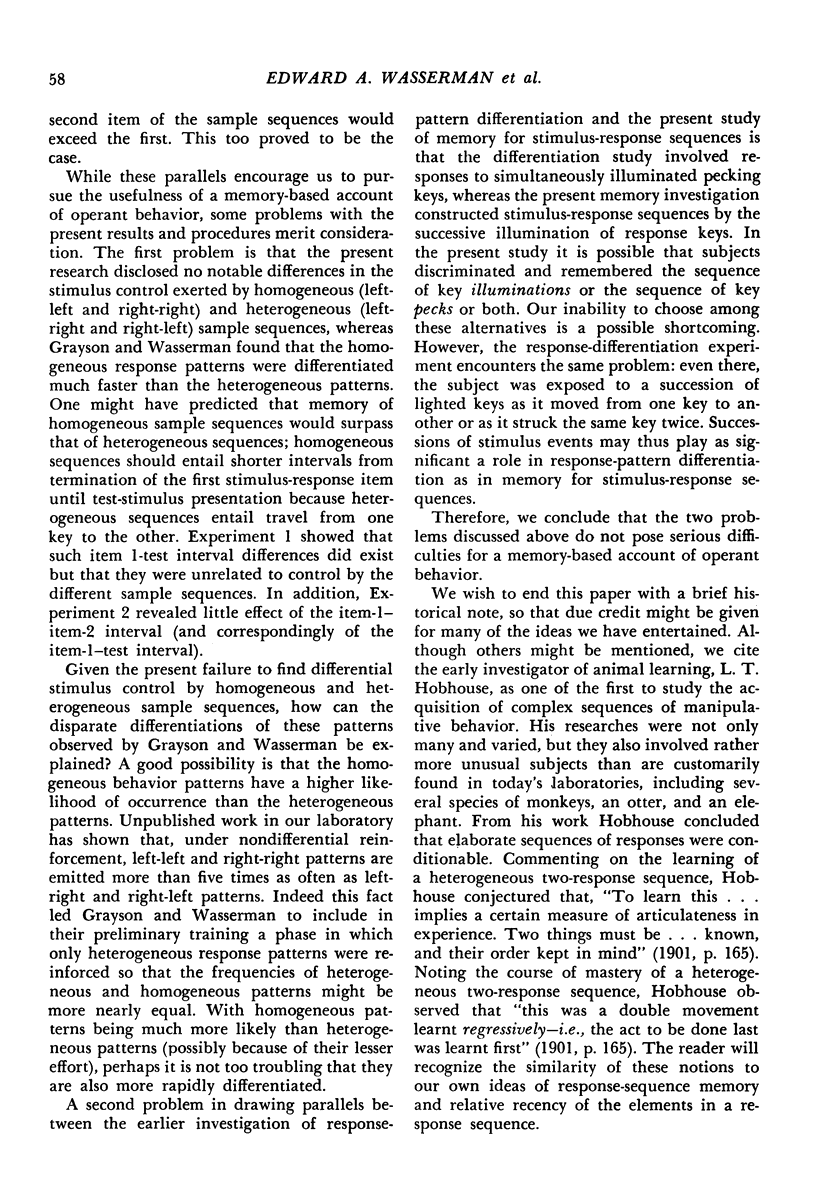
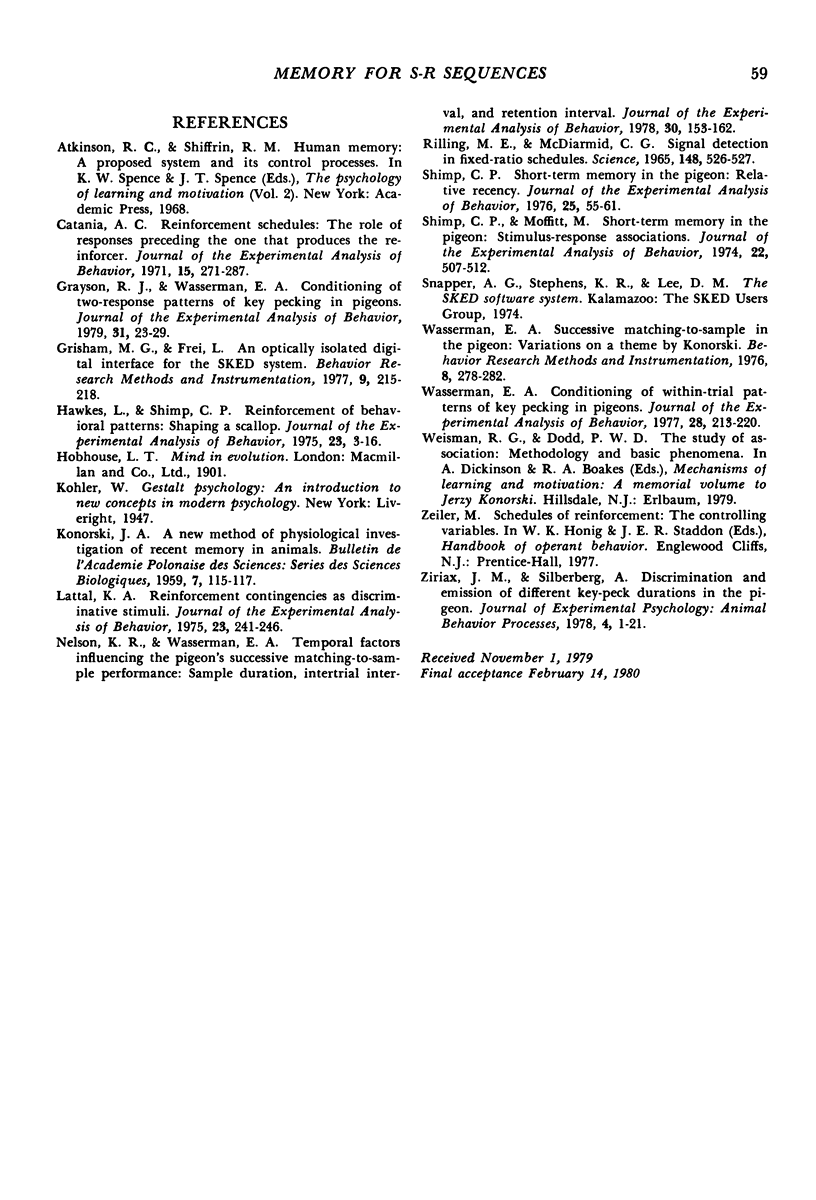
Selected References
These references are in PubMed. This may not be the complete list of references from this article.
- Catania A. C. Reinforcement schedules: the role of responses preceding the one that produces the reinforcer. J Exp Anal Behav. 1971 May;15(3):271–287. doi: 10.1901/jeab.1971.15-271. [DOI] [PMC free article] [PubMed] [Google Scholar]
- Grayson R. J., Wasserman E. A. Conditioning of two-response patterns of key pecking in pigeons. J Exp Anal Behav. 1979 Jan;31(1):23–29. doi: 10.1901/jeab.1979.31-23. [DOI] [PMC free article] [PubMed] [Google Scholar]
- Hawkes L., Shimp C. P. Reinforcement of behavioral patterns: shaping a scallop. J Exp Anal Behav. 1975 Jan;23(1):3–16. doi: 10.1901/jeab.1975.23-3. [DOI] [PMC free article] [PubMed] [Google Scholar]
- Lattal K. A. Reinforcement contingencies as discriminative stimuli. J Exp Anal Behav. 1975 Mar;23(2):241–246. doi: 10.1901/jeab.1975.23-241. [DOI] [PMC free article] [PubMed] [Google Scholar]
- Nelson K. R., Wasserman E. A. Temporal factors influencing the pigeon's successive matching-to-sample performance: sample duration, intertrial interval, and retention interval. J Exp Anal Behav. 1978 Sep;30(2):153–162. doi: 10.1901/jeab.1978.30-153. [DOI] [PMC free article] [PubMed] [Google Scholar]
- RILLING M., MCDIARMID C. SIGNAL DETECTION IN FIXED-RATIO SCHEDULES. Science. 1965 Apr 23;148(3669):526–527. doi: 10.1126/science.148.3669.526. [DOI] [PubMed] [Google Scholar]
- Shimp C. P., Moffitt M. Short-term memory in the pigeon: stimulus-response associations. J Exp Anal Behav. 1974 Nov;22(3):507–512. doi: 10.1901/jeab.1974.22-507. [DOI] [PMC free article] [PubMed] [Google Scholar]
- Shimp C. P. Short-term memory in the pigeon: relative recency. J Exp Anal Behav. 1976 Jan;25(1):55–61. doi: 10.1901/jeab.1976.25-55. [DOI] [PMC free article] [PubMed] [Google Scholar]
- Wasserman E. A. Conditioning of within-trial patterns of key pecking in pigeons. J Exp Anal Behav. 1977 Nov;28(3):213–220. doi: 10.1901/jeab.1977.28-213. [DOI] [PMC free article] [PubMed] [Google Scholar]


